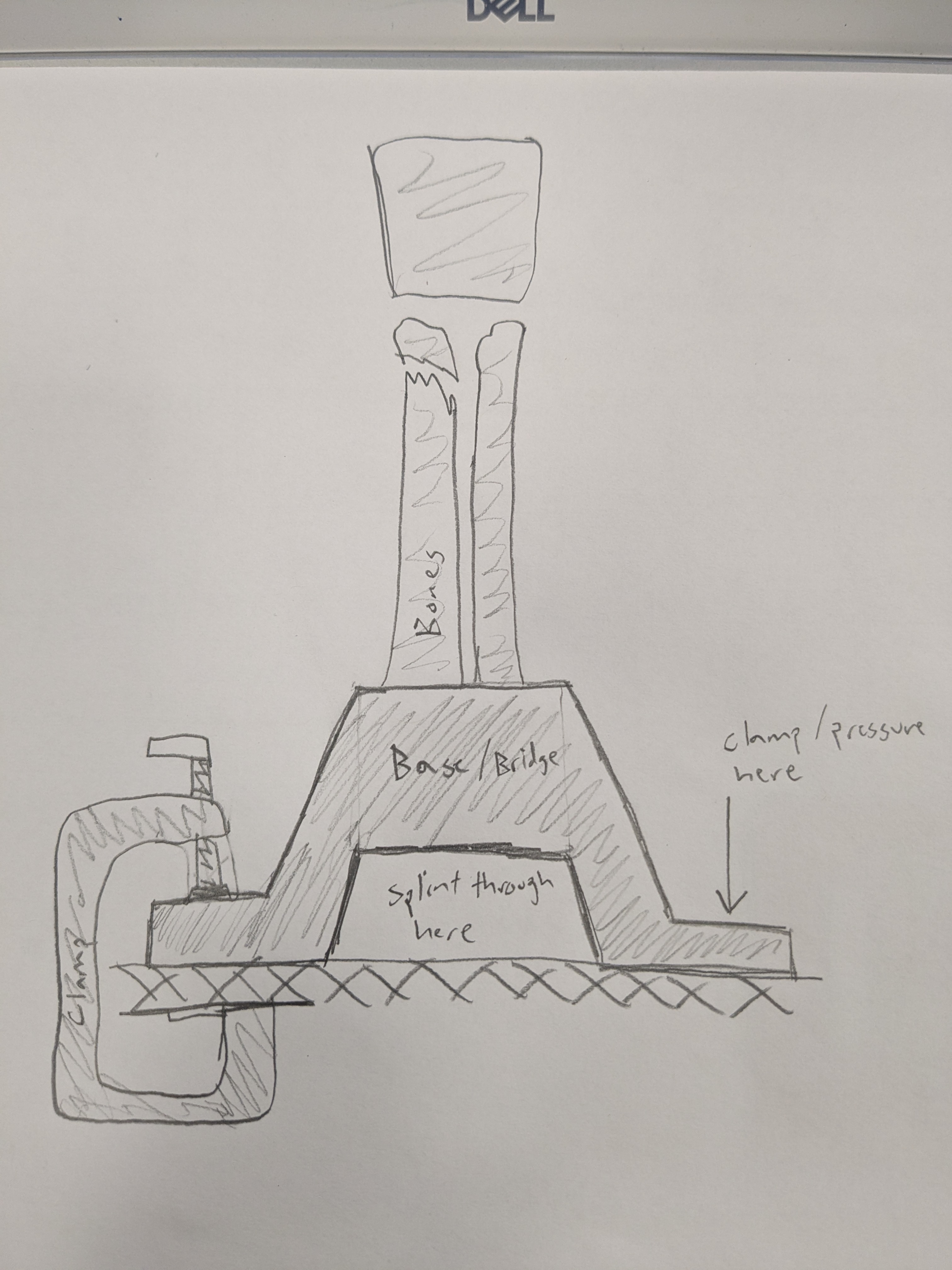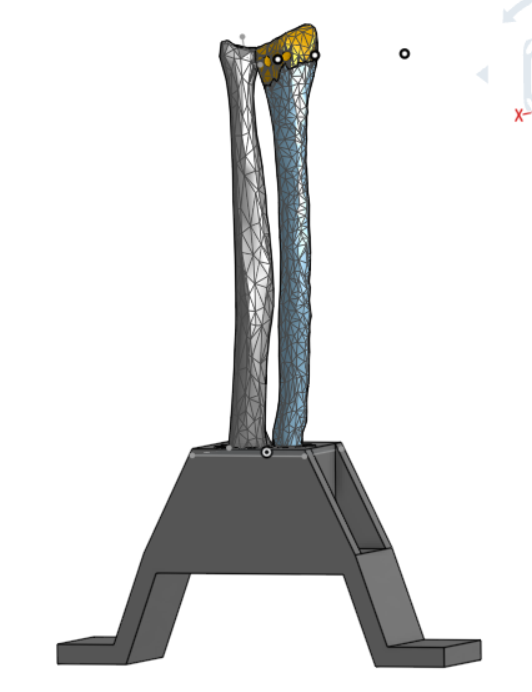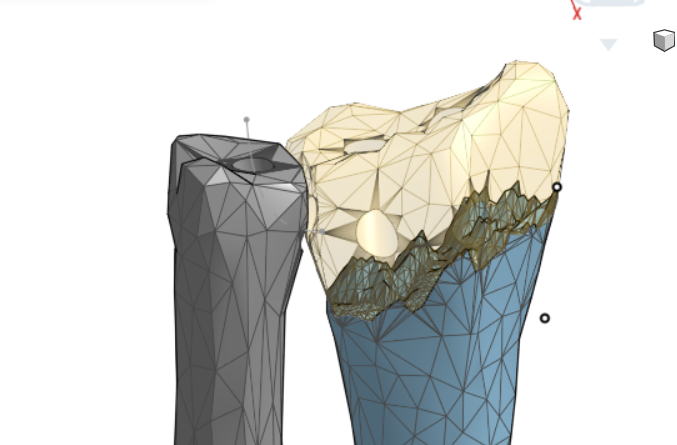
Capstone Project
My entire thesis portfolio is published here
Currently, many medical students get their first hands-on experience manually setting a wrist fracture by performing the procedure on an injured patient under guidance from an experienced doctor. Although a few DRF reduction simulation devices are on the market, the more realistic models range from $800 to $2700. Additionally, some of the more popular devices are designed after a 6’2 male, which is not representative of the general population that experiences DRF. My capstone project involved an iterative and hands-on design process to design a more affordable and accessible DRF reduction simulator. The technical report below details the design process and the techniques we used to ensure its efficacy, including FEA, structural calculations, and tensile testing.
Technical Report
While the report itself is quite detailed, a quick scroll through, glancing at all of the figures and images, will provide a great idea of the iterative design process and mechanical engineering calculations!
Video of Final Design
The video shows a key feature of this device: that it has several equilibrium positions. The first is the completely broken wrist seen at the beginning of the video, where a doctor would have to apply around 15 lbs of traction to set the fracture. The next state of equilibrium is the set position; however, the tricky part about this project was designing the device in a way that made this state easy to disrupt. One of the goals our doctor had was for the reduced position to be unstable, such that a medical student would have to practice splinting the bone to ensure it stays aligned. The second part of the video shows the unstable, set position and how the fragment can easily displace to its third equilibrium, which is where the bone is not as displaced as it was before reduction, but it would require splinting.
DRF Fracture Pattern

Medical Simulators
My team and I are collaborating with Dr. Aaron Freilich at the UVA Orthopedic Center to design this device. He has been working closely with us and has shown us a plethora of other really interesting medical simulators.
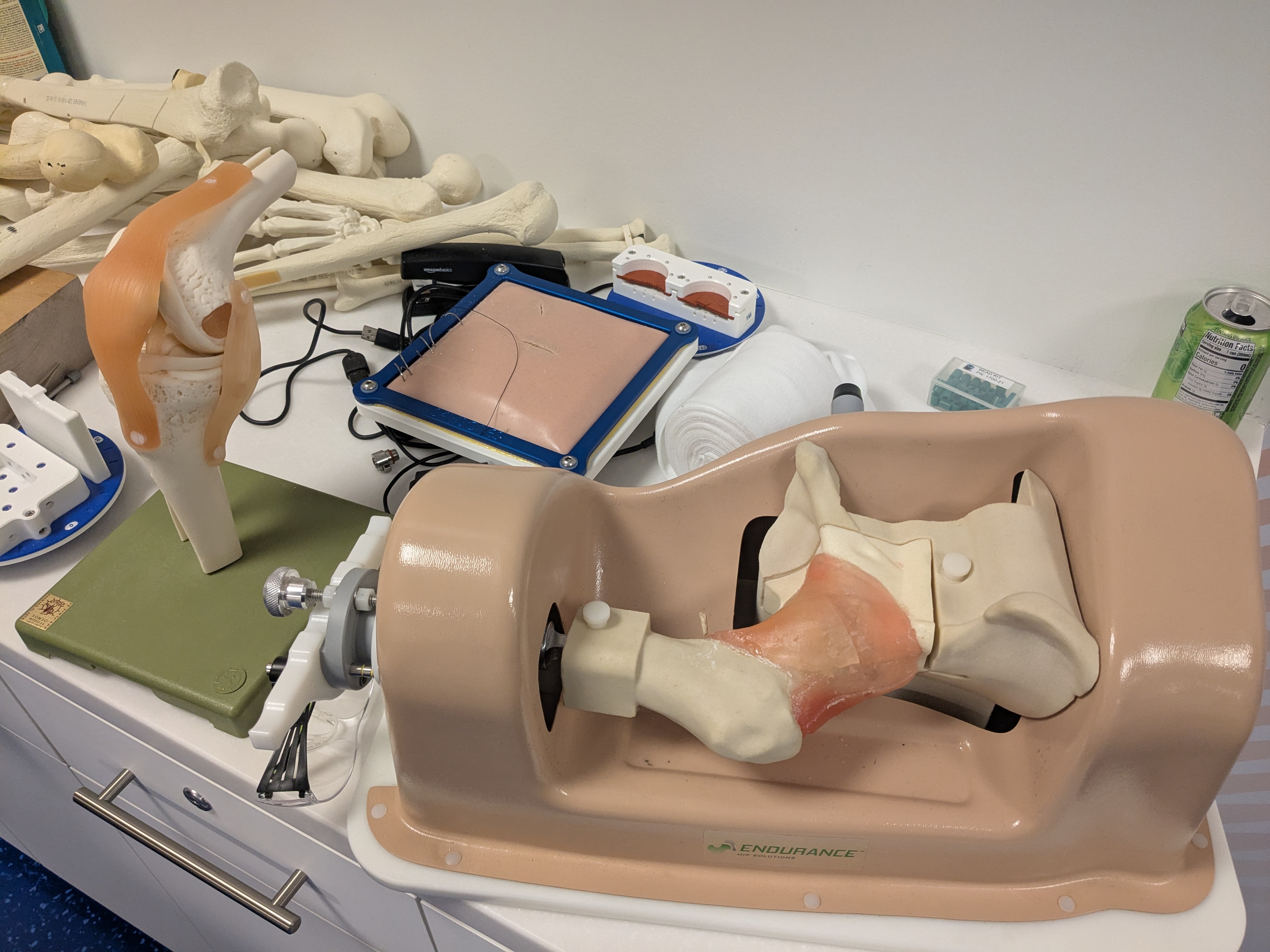
Basic Prototype
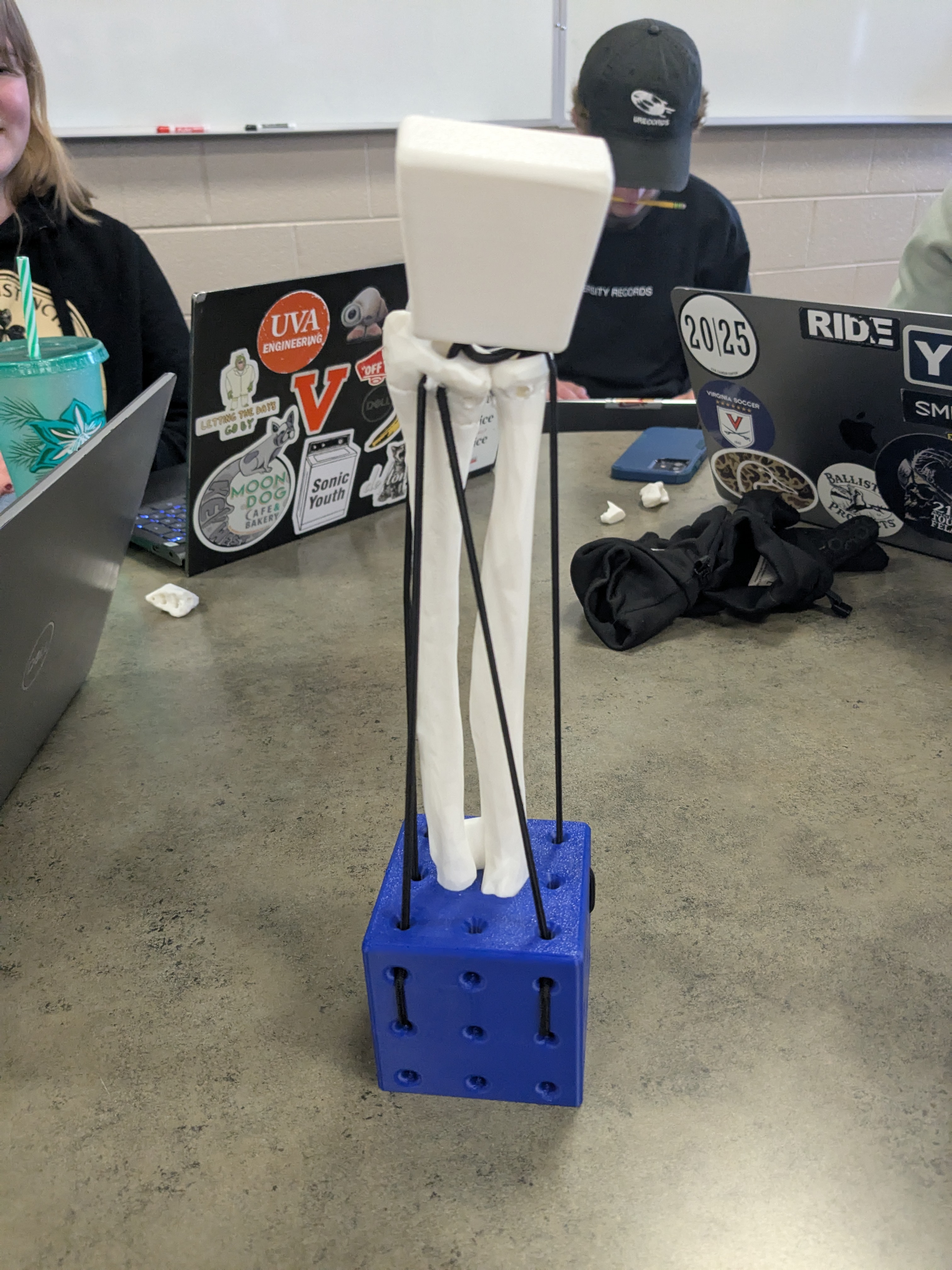
Updated Design and CAD
We are currently working on adding a worm gear mechanism in the base to allow the tendons(elastic bands) to be individually tightened, representing the varying muscle and soft tissue forces that different patients exert on the fragment. We are also adding a mounting mechanism to the base that enables medical students to wrap a splint around the bottom of the forearm and practice casting it.
